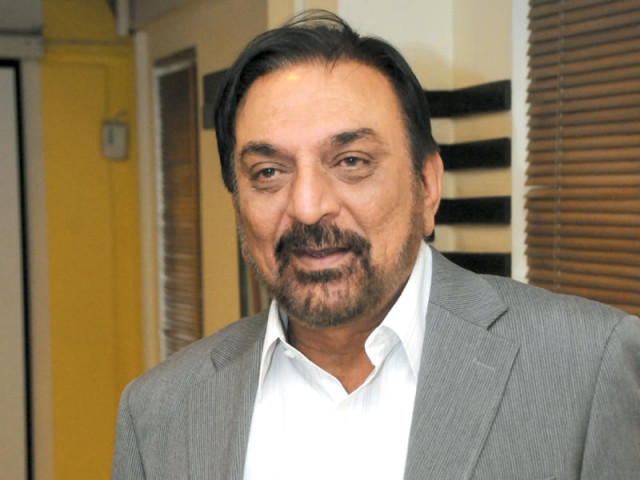Tete-a-tete with Abid Ali
The entertainer shares his journey beginning from Radio Pakistan to starting his own production house.

Tete-a-tete with Abid Ali
Abid Ali’s name has been synonymous with the Pakistani entertainment industry formany years. Currently in talks with the Express Entertainment Channel about the development of a TV series based on humorist Shafiqur Rehman’s writing and creating a soap opera “Naseebon Walian”, it seems the veteran TV actor has big plans. The Express Tribune recently sat down with Ali to talk about his past acting endeavours as well as his future plans.
Kick-starting his career in Quetta, a place where Ayub Khoso and Zeba Bakhtiar also launched their career, Ali says, “In smaller localities, people have a fire in their hearts. When talent emerges in small towns, it has to aggressively struggle, compete and strive.” From the get-go, he was inclined towards the performing arts; “I always had a strong desire to become famous. I was in the sixth grade when I started penning down stories and by 10th grade I had become a painter”, reveals the actor.
From 1969 till 1973, Ali remained in Quetta and worked with Radio Pakistan. He later moved to Lahore where he struggled for a year. Soon enough, he found fame with some of his most memorable performances. He says, “Although my acting debut was in Saleem Chistie’s play ‘Zanjeer’ for PTV, it was my acting in ‘Jhok Sial’ which helped me breakthrough into the industry.”
This led him into becoming a permanent fixture on radio, stage and television. “In those days, making ends meet with just acting was impossible, so I had to juggle between all three mediums,” says Ali about the difficulty of multitasking during those initial years.
Faced with financial struggles, Ali had no choice but to enter Lollywood at a time when the Pakistani film industry was already going downhill.“Lollywood approached me with some offers and I acted in some Urdu and Punjabi films.” Notable amongst which remain Kalay Chor and Insaniyat kay Dushman about which he reminiscences, “Some films became so popular that even today Filmazia keeps airing them.”
Discussing the state of today’s television, he says, “I had predicted the mushrooming of TV channels a few years ago but I never thought that television content would become so stagnant and creative thinkers would be discouraged and everything would become so commercialised.”
However, when it comes to Indian industry, Ali states, “When the Indian TV industry was struggling, their films became stronger. Recently, however, even their TV industry has gained substantial viewership. The reason for this is that their government has supported them. In Pakistan, our government fails to support us.”
His obvious distaste for the government’s role, or lack of it, in the entertainment industry, has led him to choose projects which are politically inclined — evident from his roles in PTV’s “Waris” and NTM’s “Dasht”. “The present government should applaud me for bringing Gwadar on the map. ‘Dasht’ was set in Gwadar at a time when it was relatively unexplored,” he says.
When it comes to his future plans, Ali informs that he is currently involved in a lot of projects under his label Abid Ali productions. He shares, “One of the productions deals with human trafficking and the other is about prostitution.”
Published in The Express Tribune, December 23rd, 2011.


















COMMENTS
Comments are moderated and generally will be posted if they are on-topic and not abusive.
For more information, please see our Comments FAQ